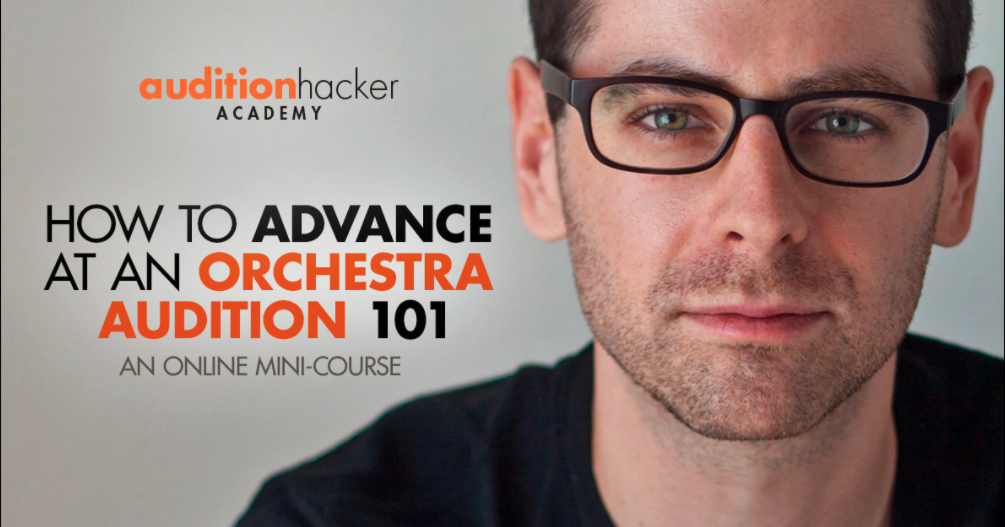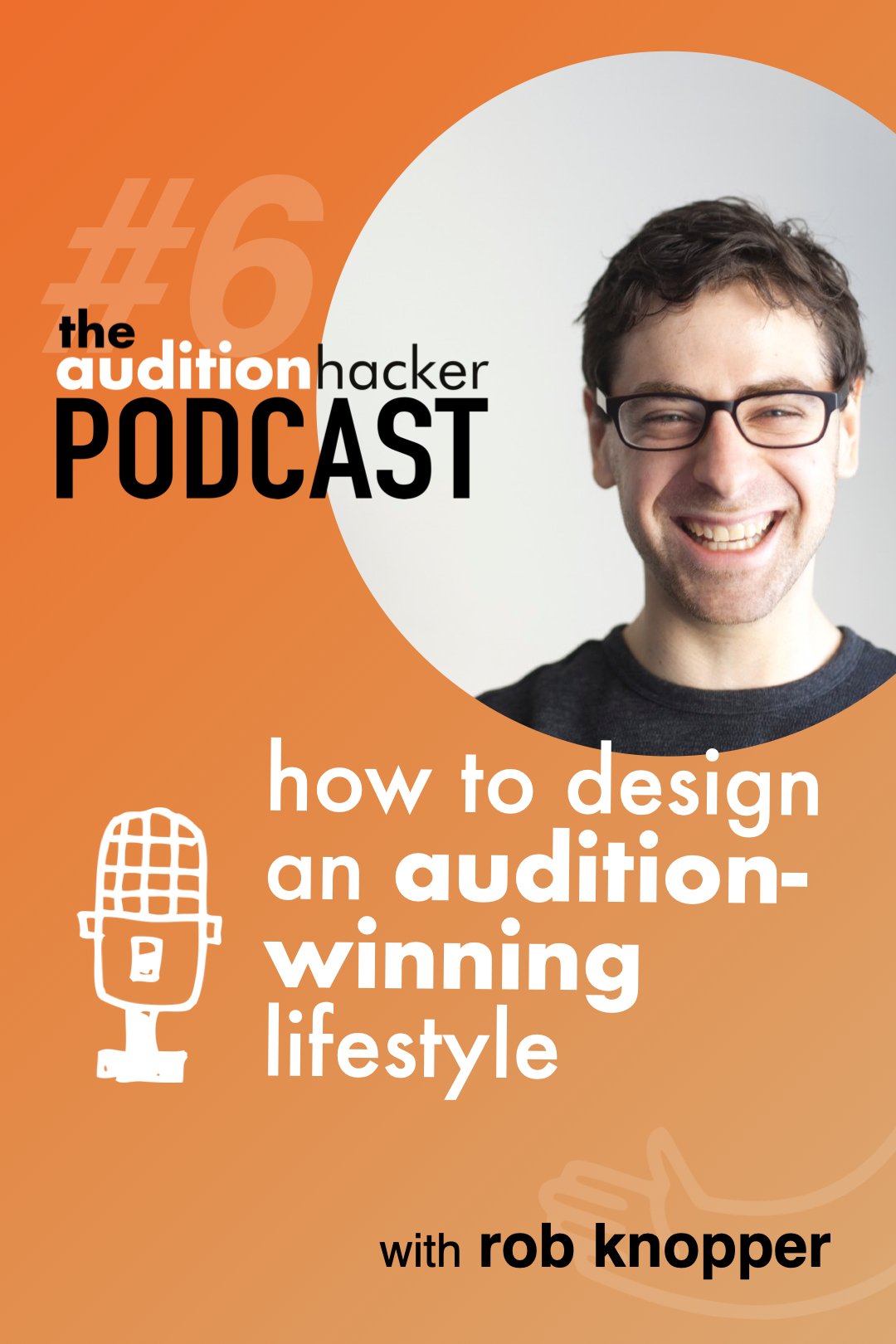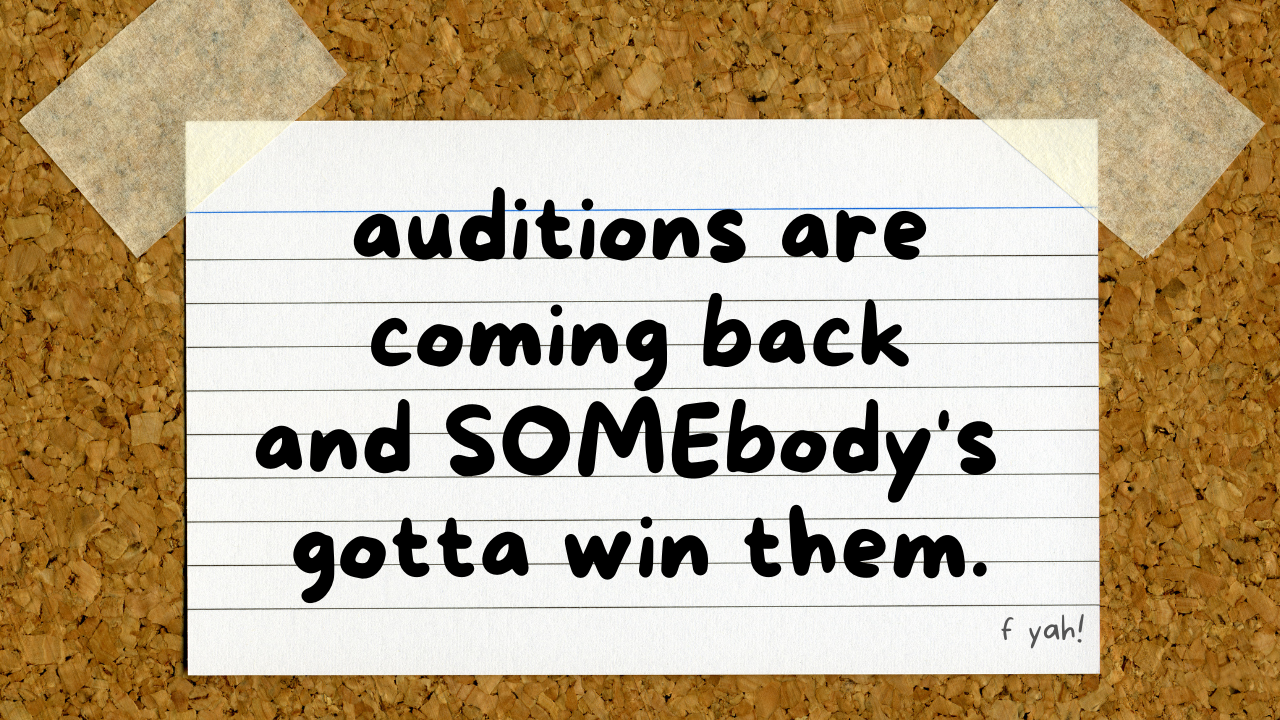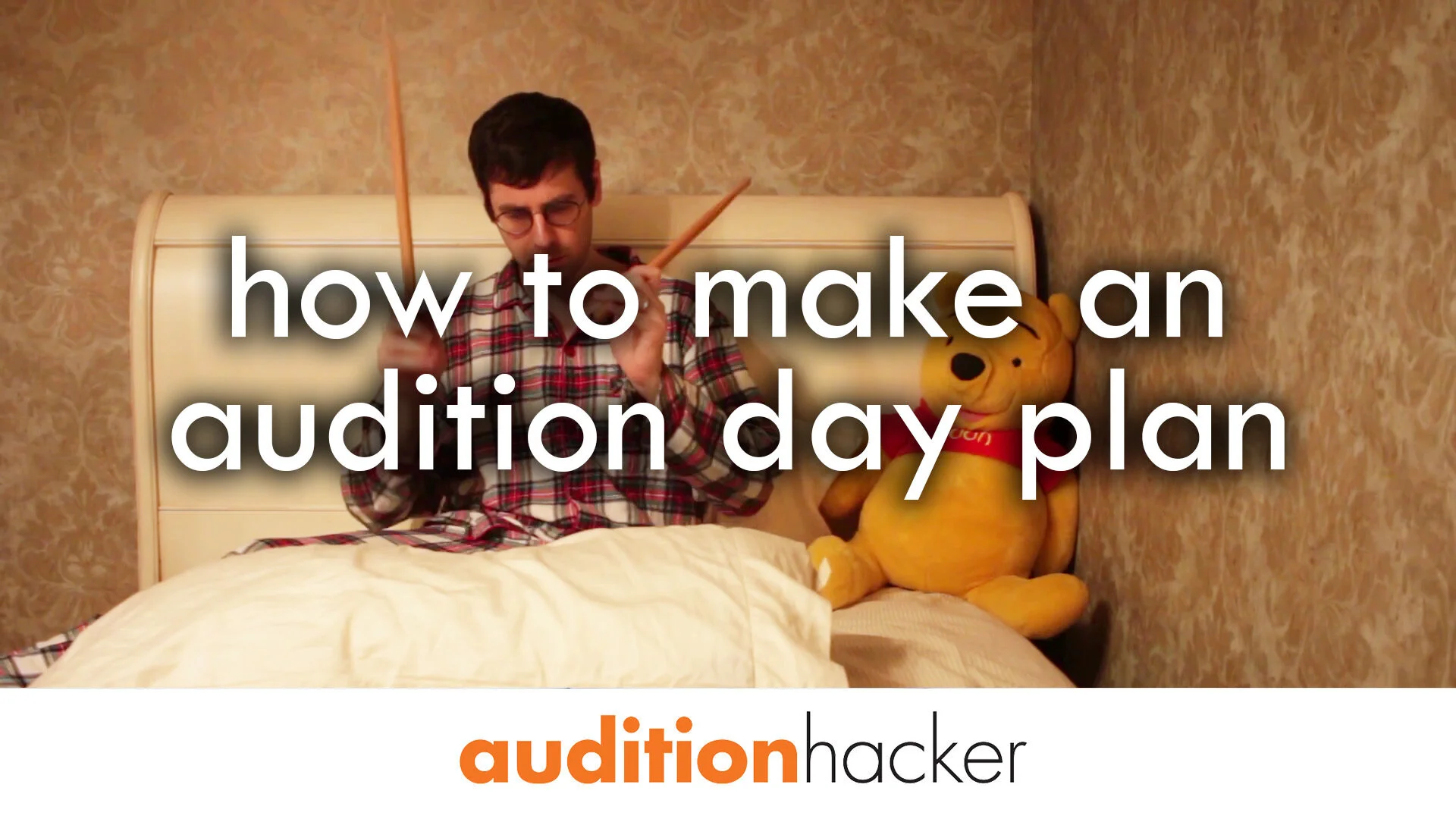it's day 9 of the 12 days of auditions! it's the video series where each day i cover a different topic on how to take auditions. yesterday was day 8: how to research an excerpt. make sure to join the auditionhacker facebook group to see the rest of them.
before my met orchestra audition, i spent 2 months in a practice room by myself, self-recording every note like an insane person. i zoomed in on every detail, addressed it, and moved to the next. it was really an obsession. self-recording turned me into the player i am today, and i attribute my job to the incredible benefit of self-recording. but long before i knew how to self-record, i had already decided that self-recording was useless.
want to learn the basics of audition preparation?
i've got just the thing. enroll in my new online mini-course, called how to advance in an orchestra audition 101. it's free and it'll be delivered straight to your email starting on november 10th.
why self-recording was useless, at first.
i was working on an audition for the ann arbor symphony. it was my the very first audition i ever took, and it was in my junior year of high school. in a lesson with my teacher, i asked him, "how should i be preparing for this?" he said, “record yourself." i remember exactly the moment he said it - we were in the basement of his house, walking up the stairs at the end of the lesson. and that was the first time i'd ever heard anybody say that. i thought, “well, what is that going to do? how is it going to help me? i’ve heard a recording of myself before, but that hasn’t actually made me better. whatever."
but, like a good student, i tried recording myself. i tried it... once. i recorded all of my excerpts. and i listened back to them. and then i said, “ok. that’s how i play. it’s not good. moving on, that didn’t help at all.” then i forgot about self recording until college.
then i discovered something amazing.
in college, i was faced with this new project - i had to make an audition tape for the buffalo symphony. i remembered my high school experience of self-recording, but i didn’t really think anything of it because it didn’t immediately work for me. so i asked my new teacher in college how to make a great audition tape.
my teacher said, (and i’m just paraphrasing,) "ok, here’s what you do. first of all, i want you to have a really good tape. even though it’s only 6 excerpts, it’s going to take forever. you’re going to have to work really hard on this because every time you make a mistake, it’s going to be really frustrating. but what it’s going to force you to figure out how to play how you think it should sound. you’re not going to be playing it just to get through it - you have to take responsibility of the end result of how it actually sounds. you have to take responsibility of not just the sound of your playing coming out of the instrument, but the sound of the recording coming out the tape. and ask yourself whether it's not just a good recording, but is it going to beat everybody?"
i worked really hard on it. i spent days in the practice room, walking back and forth between the instrument and the recording device, improving each excerpt until each was as good as i could imagine it. and then i sent it in.
in a professional audition, usually the tape round is just a few select excerpts from the full list. the purpose is for the orchestra to decide whether you’re qualified to take the live audition. you’ll send in the tape and you won’t get the response for a few weeks or even a month or two. after i sent the tape in, i had to keep practicing the list in order to be prepared if they accepted my tape. and during those weeks, i discovered something amazing.
when i started working on the full list, there were two types of excerpts. the first was all the excerpts that weren’t on the tape, and the second was all the excerpts that i had worked on for the tape. the non-tape excerpts felt normal, just like any other audition i had worked on. but those 6 excerpts that were on the tape felt unbelievable. they were completely muscle-memorized, they were polished, and i had worked out so many little details in them that they were miles ahead of the non-tape excerpts. i felt so confident on the 6 excerpts that i barely even had to practice them. they flowed because i had already figured out so many problems with them through the process of self-recording.
i didn’t end up passing the tape round, but that’s not important.
self-recording isn’t just for making audition tapes, it’s for everything.
after that, i was practicing for my new world audition, and i decided to try something. i thought to myself, “remember how great it was for my excerpts to record them for my audition tape? here’s what i’m going to do. i’m going to pretend like i’m recording an audition tape, but that audition tape is going to be as long as the whole list. i’m essentially going to make an audition tape, and go through all the motions to get to the point where i can turn in an audition tape, even though i’m not actually going to turn it in. my hypothesis is that it’s going to improve those excerpts drastically so they’re all going to be at a completely new level."
and that’s exactly what i did, and i got runner up. i was absolutely amazed at how much the self-recording helped me. and at that moment i knew that it was a permanent new part of my audition preparation. if i was serious about winning a job, it had to be a part of my audition process, forever: that’s how effective it was. i took this process and inserted into my excerpt assembly line. it has to be in there. every excerpt has to be addressed, and every measure and every note of every excerpt has to be addressed in this new way of recording myself.
and then i won a job.
after that audition, i continued to self-record. every new audition would include a major self-recording phase. a year after i got runner-up in the new world symphony, i won a position at new world. and a year after that, i won my job at the met. and two years after that, i recorded the delécluse: douze études for snare drum. during each of those auditions and projects, self-recording was a centerpiece of my preparation process.












in 2019, a cellist named maria reached out to me about her audition struggles. on paper, she was the “worst audition candidate ever” (her words). she had 2 small children, a full-time teaching job, and hadn’t taken an audition in 4 years.